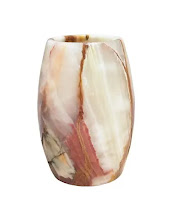doctor and I care for people who have kidney disease high blood pressure heart disease heart failure liver disease a whole spectrum of problems and one of the things that is important for a lot of my patients is if they eat a low sodium diet so what I often hear from my patients is they say well I've started.
using sea salt instead of regular salt
just to make sure I'm doing better for
my health and so I thought it'd be fun today if I took a few minutes and I went through the type of salts I have at home and the health benefits of each one let me start by saying this first and clearly all salt is salt let me say that again all sold short so iodized salt is what most of us use in baking it's got a
little bit of a chemically taste so I don't use it for salads and things like that but iodine has been added to salt
in order to prevent iodine deficiency in a lot of parts of the world because iodine deficient can lead to thyroid problems and other health problems so that's it as far as health benefit fromone type of salt versus another
iodized salt has iodine in it I use it for baking I don't use it really for
anything else in my house this right here is kosher salt coarse kosher salt
as you can see it kind of has a littlebigger grain sin normal salt and I keep
it out in a little Bowl just like this when I need salt take a little pinch put
it right on my vegetables it's simple it's easy I use a little bit throughout
the cooking process this is my go-tosalt kosher salt this is sea salt sea
salt is just like any other salt it's not healthier it doesn't have less
sodium in it it's the same the sea salt has maybe a little bit of a different
flavor than the kosher salt but reallyit can be used anytime you would use
kosher salt I use sea salt just as something to change it up a little bit I
keep it on the table to season my food the end but there's no benefit to using
sea salt over kosher salt or table salt now for the controversial one if you
look on the internet you would thinkthat pink Himalayan salt is the cure for
all that ails you because the claim that it has more elements it's not as
processed as regular salt there's this theory that it is better for you helps keep your electrolytes balanced that's nonsense Himalayan salt is 95 to 98% sodium chloride regular salt it has a trace
amount of other elements and so it is not any better for your health now who
doesn't love a little bit of pink salt I mean look at it it's beautiful right
it's fun eating and choosing salt is really not about how always it's about
fun little pink salt put it on your food keep it out on the table it's a conversation starter I love it
lastly we got this thing called Maldon salt now if you look at this box this is
a worn through box of salt and the reason why it's worn through is because
I don't use molten salt very often it has these huge flakes which give you a
burst of salt.it's a finishing salt you use it at the
very end of your dish when you want to really have a salt pop when you take a bite and I find it's a little too salty for me I almost never want a big salt crystals bite but it's a lot of fun also
to use if you have people that enjoy
that kind of flavor and if you are
careful about how much salt you put in
the rest of your food and your
ingredients as you're cooking it it's okay to finish your dish with a little
bit of salt so remember this choose the
type of salt you're cooking with based
on flavor based on presentation based on
what excites you the only health benefit
to one type of salt over the other is
the iodized salt will help protect your thyroid everything else
sea salt kosher salt Maldon salt
Himalayan pink salt it's all sodium
chloride it doesn't matter
change your buds and learn to use just a
little bit of salt while you're cooking
we'll really enhance the flavor but
don't overdo it for more health.information make sure you stop by my
website the nidatradings dot com I've got a
blog sign up for my email list weekly
tips and recipes directly to your inbox
and we'll see you next time 

No comments:
Post a Comment